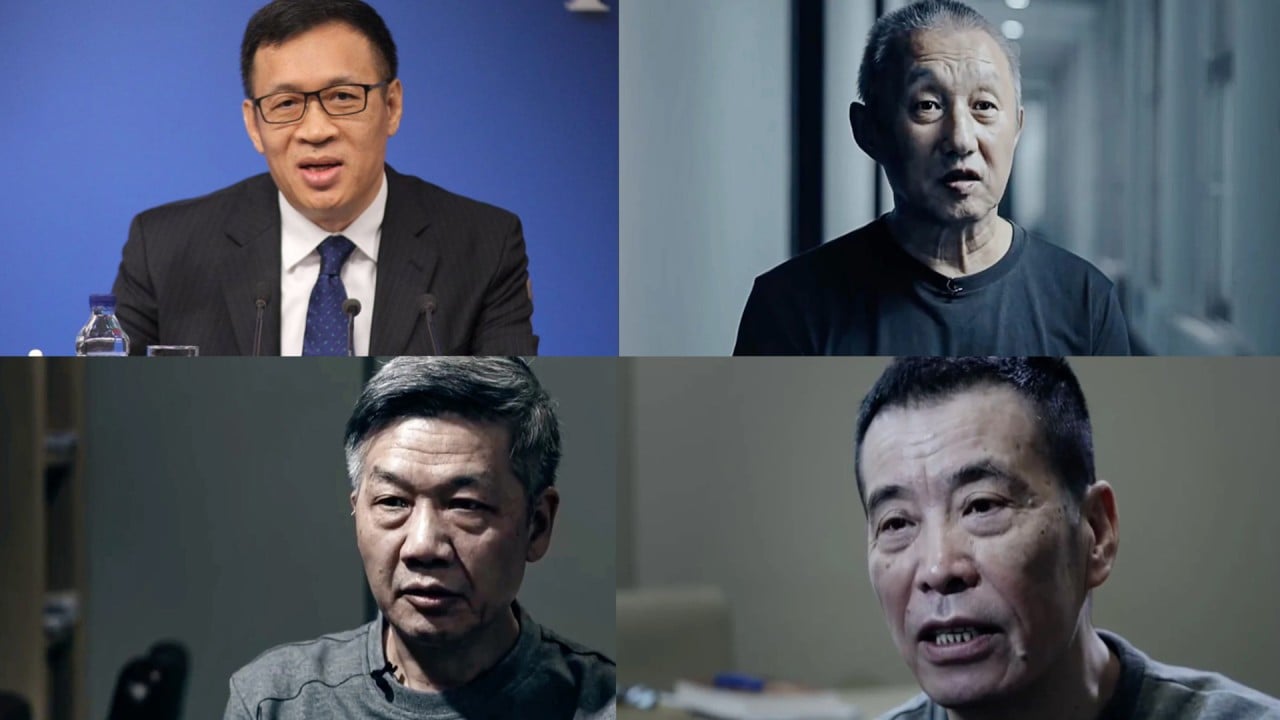China’s Communist Party vows to take on ‘new and old challenges’ in People’s Daily article based on Xi Jinping’s speech

An article in party mouthpiece the People’s Daily said these problems would not go away any time soon, and resolving them would be “a long and arduous process”.
“There is always the possibility that some old problems will rebound. If we relax even a little bit, they will resurface, while new problems are still emerging,” the article said.
It ran under the byline “commentator of the People’s Daily” – indicating direct endorsement from the senior party leadership.
The “four dangers” will threaten the party’s power for a long time, the article warned, referring to the official term covering lax discipline, incompetence, popular disconnect and corruption.
This comes as graft fighters report a record number of internal investigations of senior officials, more than a year after the party’s 20th national congress where Xi began a third term as leader amid a show of even firmer support for him.
In his work report to the congress, Xi said the party had “waged a battle against corruption on a scale unprecedented in our history” and “achieved an overwhelming victory”.
Anti-corruption officers have pointed to a wide range of misconduct for those probes, including corruption, snubbing instructions from the senior leadership, political disloyalty and irresponsible use of public funds.
Two weeks ago, Xi reiterated his call for the party to find ways to transcend “the historical cycle of rise and fall”.
Addressing hundreds of top discipline inspectors gathered for the CCDI’s annual meeting in Beijing on January 8, Xi emphasised the “strategic question” facing the party’s 98 million members.
“As the world’s largest Marxist ruling party, how can our party successfully break free from the historical cycle of rise and fall and ensure that it will never change its nature, convictions or character?” he was quoted as saying by state media.
Thursday’s article said the Chinese Communist Party must draw painful lessons from many other “large parties and parties with a long history” that had failed, but did not offer any specific examples.
“They were once full of vigour and vitality, but some have fallen apart or disappeared, some have weakened and are approaching their end, while some are in deep trouble. These are very regrettable and thought provoking [lessons],” it said.
Brian Wong, assistant professor of philosophy at the University of Hong Kong, cited Beijing’s tracking of communist powers around the world.
Beijing had kept a watchful eye on events such as the decline and fall of the Soviet Union, the changes in Eastern Europe, and the “falling apart” of revolutionary parties, such as in Cambodia, Wong said.
“On the other hand, Beijing also recognises that the socioeconomic inequalities giving rise to great instability in advanced liberal democracies point towards the need to redress these inequalities [in communist states] and [enforce] internal party discipline.”
The People’s Daily article also said China’s unique situation made it impossible for it to follow the paths of other countries. “Unique problems can only be fundamentally solved by relying on the party’s internal strength”, it said.
China’s ruling party sees strict enforcement of discipline as a way to sustain its public appeal.
Xi relaunched the Mao-style “self-revolution” slogan in 2015 with this in mind, and has since repeatedly emphasised this as the only way forward to keep the people’s support.
A People’s Daily report on the January 8 meeting hailed the “courage” in carrying out self-revolution as “the most distinctive character and greatest advantage” of the party.
The concept, often metaphorised as a “blade turned inward”, is a response to concerns about the impact of corruption on the party.
It mainly involves a rigorous system to oversee all officials, building a competent disciplinary supervision team, and a better combination of carrot and stick to steer officials away from temptation.
The People’s Daily article also warned of the “four major tests” faced by the party with regard to governance, reform and opening-up, the market economy and the external environment.
The latest data released by the CCDI on Thursday showed 610,000 cadres had been reprimanded last year, a 3 per cent increase over 2022, while 49 ministerial rank officials faced disciplinary action, compared with 53 the previous year.
A political researcher at Tsinghua University in Beijing said Xi’s speech to the CCDI and the People’s Daily commentary showed the anti-corruption drive would not be removed from the president’s priority list for “a very long period of time”.
“The ‘old problems’ [in the article] refer to the corruption that took place before … Xi came to power, primarily caused by vibrant economic growth and more lax party discipline,” the Tsinghua researcher said, declining to be named as he was not authorised to speak to the media.
“The new problems can refer to those who fall prey to increased infiltration from the West, as China and the West are competing on many fronts, and those who refuse to implement Xi’s policy directions or engage in pointless formalities and bureaucracy while Xi wants to see results.”

